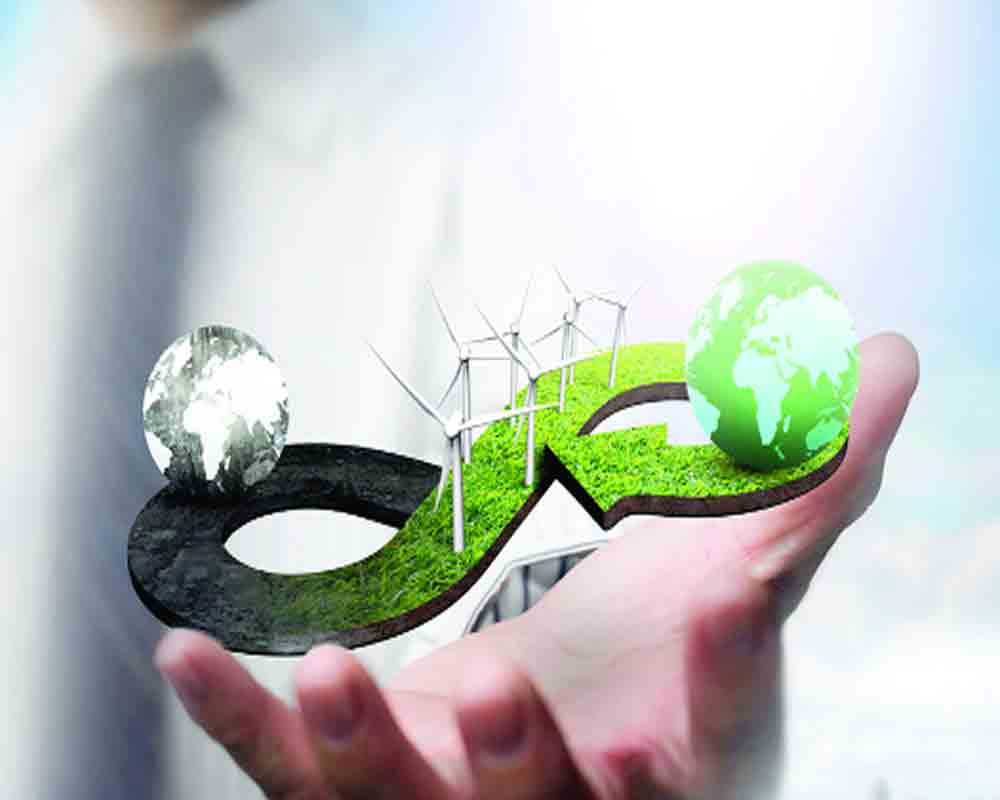In a world grappling with environmental challenges and resource scarcity, the concept of a circular economy has emerged as a beacon of hope
Do you know what happens to the millions of new products that are returned by online buyers for being faulty? Well they are disposed off and add to the height of landfill sites. But now the circular economy is changing this. It is an innovative economic model that offers a sustainable solution to the traditional linear economy, where resources are extracted, used, and disposed of. Circular economy focuses on minimising waste and maximising resource efficiency through recycling, reusing, and repurposing.
The circular economy is not just a theoretical concept; it's being put into practice by businesses and governments around the world. It offers a transformative approach to economic activity that benefits both the environment and the society.
By embracing the principles of durability, reusability, recycling, and sharing, we can shift away from our current linear economy, characterised by wastefulness and resource depletion. Businesses, governments, and individuals collaborate to create a more sustainable and prosperous future for all.There is always excess inventory across multiple brands in the B2B market. Online e-commerce has only added to the returns and faulty products. Now many companies are working to provide these products after refurbishing and repacking them and selling them for a discounted price.
Businesses, governments, and individuals must collaborate in transitioning towards a circular economy, aiming to forge a more sustainable and prosperous future for all. Specialising in managing excess inventory across various brands in the B2B market, many companies now offer solutions for liquidating surplus stock efficiently and effectively.
They not only help the manufacturing company swiftly dispose of excess inventory, thereby freeing up valuable space and resources but also help customers buy branded products at throwaway prices, not to mention that it helps the environment by keeping these products away from the landfills.“In addition to delivering a reliable and professional service, we take pride in its commitment to sustainability. By facilitating the resale and redistribution of excess inventory, we contribute to waste reduction and minimise the environmental impact of surplus stock.
This commitment aligns with the growing trend towards sustainable and ethical business practices,” says Yuvraj Aman Singh, founder of Rocking Deals, the company that specialises in refurbishing and repackaging branded products. Indeed, the circular economy model has a unique approach to the traditional buying and selling model, offering an eco-friendly and cost-effective alternative for consumers.
This business model enables customers to save money by acquiring products at reduced prices, particularly beneficial for those seeking high-quality items at a more affordable cost. Emphasising unboxed and pre-owned products also promotes a more sustainable lifestyle, aligning with the increasing awareness of the environmental impact of consumer choices.“Our business actively contributes to the circular economy by extending the lifespan of products that might otherwise end up in landfills. This approach not only benefits the environment but also reduces the demand for new products, subsequently lowering the resources required for their production,” Says Yuvraj Aman Singh who fashioned Rocking Deals, on the circular economy model.
It would be even better if the government also actively supported the concept by giving tax benefits and other sops to the people who become part of the circular economy, after all, they are helping the environment and reducing their carbon footprint. The circular economy is the way forward, a win-win for all – companies, customers and the environment!
(The author is a development writer and a business coach, views are personal)
























